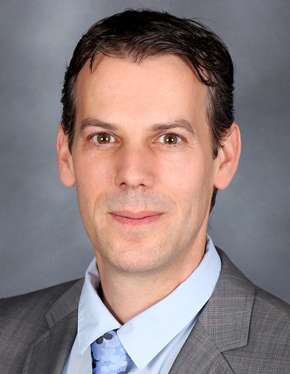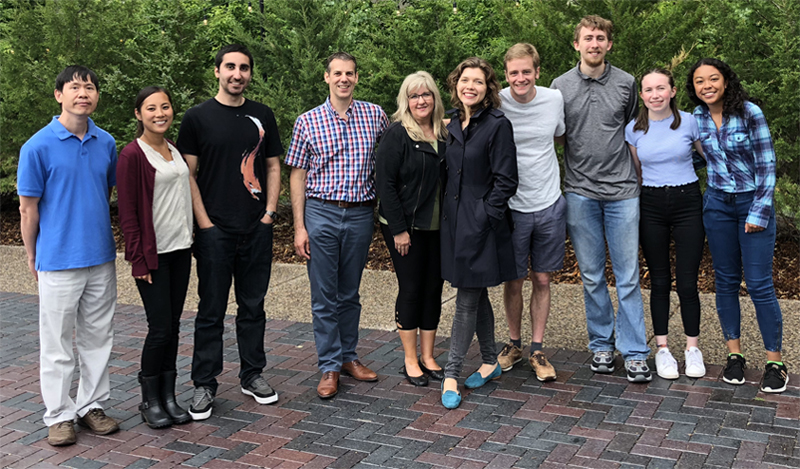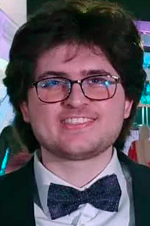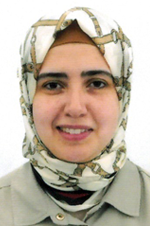van Berlo Lab

The van Berlo lab works to uncover the biological pathways that regulate cardiac regeneration. Over the past decade it has become clear that the heart contains a small fraction of cells, called stem cells or progenitor cells, which are undifferentiated and retain the capacity to become cardiomyocytes. Other labs have isolated these progenitor cells and shown their ability to form new myocytes in cell culture. We are working to determine whether these cells actively make new myocytes in the living mouse heart at baseline, and after injury. Furthermore, we are working toward uncovering the pathways that regulate whether progenitor cells differentiate down the cardiomyocyte lineage or other cardiac lineages.
The overall aim of the lab is to find new ways of stimulating cardiac regeneration that can be translated to human patient care.
Role of cardiac progenitor cells in vivo during cardiac development
Cardiac regeneration is the main focus of the van Berlo lab. We use genetic mouse models to visualize and interrupt cardiac progenitor cell function in vivo. There are currently a number of different clinical trials using human cardiac progenitor cells. Although the initial results appear encouraging, we actually don’t know the role of these progenitor cells in vivo. Many questions remain such as do these CPCs actually contribute to cardiac renewal and regeneration. Which CPC population has the highest potential in vivo? What are signaling pathways employed by CPCs to differentiate into various cardiac lineages. Which are the main sources of cardiac renewal, cardiomyocytes or CPCs?
We have developed new mouse models that allow genetic lineage tracing of cardiac progenitor cells in vivo. Moreover, we will unravel the signaling pathways in CPCs in vivo using a combination of immunohistochemistry, high-throughput sequencing and cell culture.
Define new regulators of cardiac hypertrophy
It is clear that cardiac hypertrophy is an important risk factor for sudden cardiac death and that it adversely affects hypertension outcome and may lead to heart failure. Furthermore, we know quite a bit about the different players that can result in cardiac hypertrophy. However, we lack an integrated overview of how cardiomyocytes deal with the various stimuli that drive cardiac hypertrophy. We will employ a comprehensive and systematic approach to study the effect of individual genes on the development of cardiac hypertrophy. This will allow us to built signaling networks and unravel nodal points that may be targeted for therapy.
Explore the role of alternative splicing in the development/progression of cardiac disease.
The relatively new field of alternative splicing in cardiomyocytes is the third focus in the lab. Although a couple of splicing factors are known to cause cardiomyopathy when deleted, there are hardly any studies that address the role of alternative splicing in the development and progression of cardiac disease. Here, we will use genetic mouse models, in combination with molecular techniques to uncover the importance of various splicing factors in the heart. The goal is to determine the role of alternative splicing in disease progression, but also to find new regulators of alternative splicing.
A complete list of publications can be found here: Experts@Minnesota / Jop van Berlo
- Van Berlo JH, Kanisicak O, Maillet M, Vagnozzi RJ, Karch J, Lin SCJ, Middleton RC, Marbán E, Molkentin JD. C-kit+ cells minimally contribute cardiomyocytes to the heart. Nature. 2014 May 7.
- Elrod JW and van Berlo JH. Unraveling the complexities of cardiac remodeling and hypertrophy – high-content screening and computational modeling. J Mol Cell Cardiol. 2014 Apr 15.
- Van Berlo JH, Aronow BJ, Molkentin JD. Parsing the roles of the transcription factors GATA-4 and GATA-6 in the adult cardiac hypertrophic response. PLoS One 2013 Dec 31;8(12):e84591.
- Van Berlo JH, Maillet M, Molkentin JD. Signaling effectors underlying pathologic growth and remodeling of the heart. J Clin Invest. 2013 Jan 2;123(1):37-45.
- Maillet M, van Berlo JH, Molkentin JD. Molecular basis of physiological heart growth: fundamental concepts and new players. Nat Rev Mol Cell Biol. 2012 Dec 12;14(1):38-48.

Jop van Berlo, Principal Investigator
Contact: jvanberl@umn.edu
Ahmed Almahdy, Researcher
Contact: aalmahdy@umn.edu
Andrea Torniainen, Researcher
Contact: torni017@umn.edu
Ruchen Wang, Researcher
Contact: wang8867@umn.edu

Natalia Araujo, Post-doc Associate
Joined the Lab: March, 2023
Education:
2022 Ph.D. - Cardiovascular Physiology and Pharmacology - Federal University of Minas Gerais
2017 Master’s - Vascular Pharmacology - Federal University of Minas Gerais
2014 Bachelor - Biological Sciences: Biotechnology and Health - Federal University of Minas Gerais
Research Interests: Exploring the role of septins in the heart, with particular interest in understanding the underlying mechanisms by which they regulate processes associated with cardiac remodeling under stress conditions. Unraveling the underlying mechanisms through which Wwc2 regulates cardiomyocyte proliferation and maturation.
Accomplishments:
2021 - Mitacs Globalink Research Award for research internship in Canada
2021 - Honorable Mention at XXV Brazilian Symposium of Cardiovascular Physiology
2021 - Award at V Vascular Biology Symposium (Brazil)
2017 - Clinical Science Young Investigator Award at XI International Symposium on Vasoactive Peptides
2015 - Amil Award – Antônio Felipe Sanjuliani at XXIII Congress of the Brazilian Society of Hypertension
Contact: naraujo@umn.edu
Upendra Chalise, Post-doc Associate
Contact: uchalise@umn.edu
Fernando Neto, Post-doc Associate
Contact: fsneto@umn.edu
Jennifer Mikkila, Grad Student
Contact: winte608@umn.edu
Ashab Alamgir, Medical Student
Contact: aalamgir@umn.edu

Omar Mahmoud, Volunteer
Joined the Lab: September, 2023
Education: June 2023 MD Graduated from China Medical University
Research Interests: Cardiac Regeneration using iPSC's
Accomplishments: Cardio-thoracic surgery for pediatrics and adults observership
Contact: omahmoud@umn.edu

Mai Salem, Volunteer
Joined the lab: September, 2023
Education:
- 09/2022-12/2022 : SCB-8181 Stem Cell Biology class (3.0 credits) Stem cell institute, University of Minnesota Twin cities, USA. SCB-5054 Stem Cell Biology class (2.0 credits) Stem cell institute, University of Minnesota, Twin cities USA.
- 09/2012-09/2015: Master degree in clinical pathology (2015). Al Azhar University, Cairo, Egypt.
- 09/2003-02/2011: Bachelor of Medicine and Surgery (M.B.B. Ch), Faculty of Medicine, Zagazig University, Egypt.(Excellent with Honor).
Research Interests: I am mostly interested in gene therapy and stem cell therapy. I am equally intrigued by flow cytometry as a key tool in both of these lines of research.
Accomplishments:
- 2014:Essay (adenovirus from pathogen to friend) for fulfilling master degree in clinical pathology at Al Azhar university, cairo, Egypt.
- 2023: Thesis (Role of SIRT1 gene in the development of Diabetic retinopathy)for fulfilling PHD degree in clinical pathology at Al Azhar university, Cairo, Egypt.
- 2023: abstract : (Deciphering immune response alteration by mass cytometry in losartan treated COVID-19 patients)SDI Department at the University of Minnesota
Contact: salem081@umn.edu
Kira Albers, Undergrad Volunteer
Contact: alber848@umn.edu
Preston Le, Undergrad Volunteer
Contact: le000390@umn.edu
Kaiden Meyer, Undergrad Volunteer
Contact: meye3334@umn.edu
Ojaswini Thodupunoori, Undergrad Volunteer
Contact: thodu001@umn.edu